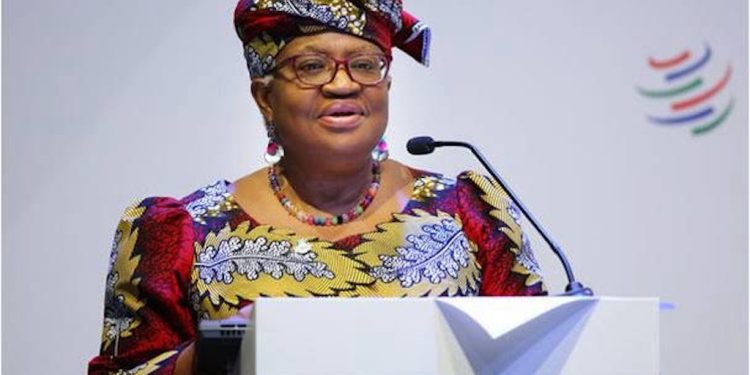In a significant turn of events, the Director-General of the World Trade Organization (WTO), Dr. Ngozi Okonjo-Iweala, has given a surprising nod of approval to President Bola Tinubu’s economic reforms. Speaking to journalists after a closed-door meeting with the President, Okonjo-Iweala, a former Nigerian finance minister herself, credited the Tinubu administration with successfully stabilizing the country’s economy through a series of bold, if difficult, policies. This endorsement, coming from such a globally respected economic figure, provides a powerful validation of the government’s direction, even as many Nigerians grapple with the immediate hardships these reforms have brought.
The reforms in question, initiated since Tinubu took office, include the removal of the long-standing fuel subsidies and the unification of multiple foreign exchange rates. While these measures have been praised for promoting fiscal discipline and liberalizing the economy, they have also led to a sharp increase in the cost of living for many citizens. This has created a complex and challenging environment, with a stable economic foundation being built at the expense of short-term comfort for a large portion of the population.
The Path Forward: From Stability to Growth
Okonjo-Iweala’s praise, however, came with a clear and urgent message: stability is not enough. While acknowledging that a stable economy is a prerequisite for any real improvement, she outlined the critical next steps the government must take to ensure the reforms benefit all Nigerians. The focus, she emphasized, must now shift to stimulating economic growth and creating robust social safety nets to protect vulnerable citizens.
ALSO READ: Did a Billion-Dollar Threat Just Drop in the Biden-Trump Saga? The Epstein Claim Igniting a Legal Firestorm
https://nationscuriosity.com/did-a-billion-dollar-threat-just-drop-in-the/
According to Okonjo-Iweala, the government needs to prioritize policies that lead to job creation and put more money directly into people’s pockets. She stressed the importance of building a strong social safety net to help those who are “feeling the pinch of the reforms” to “weather the hardship.” This next phase is about ensuring the economic gains are inclusive and that the burden of the reforms is not carried disproportionately by the poor and marginalized.
WTO’s Support for Nigerian Women
During her visit, Okonjo-Iweala also briefed the President on a new initiative aimed at empowering Nigerian women in the digital export economy. In a move designed to directly support the vulnerable and create economic opportunities, the WTO and the International Trade Centre (ITC) have launched a fund for women exporters. This program will provide financial grants and technical support to Nigerian women to help them start or scale their businesses. The initiative, which saw 146 Nigerian women selected out of 67,000 applicants, is a concrete example of the kind of targeted support Okonjo-Iweala believes is necessary to translate macroeconomic stability into tangible benefits for households.
The launch of this fund, with its focus on the digital economy, also highlights the enormous potential Okonjo-Iweala sees in Nigeria’s ICT sector. She noted that the sector has already become a significant contributor to the country’s GDP, and with further investment in infrastructure like fiber optic networks, Nigeria could tap into the global digital trade market, valued at trillions of dollars.
Conclusion: A Pivotal Moment for Nigeria
Okonjo-Iweala’s visit and her comments mark a pivotal moment for Nigeria’s economic trajectory. Her commendation of the initial reforms provides a strong foundation for the government to build upon. However, her call for a swift and decisive shift toward inclusive growth and social protection is a stark reminder that the journey is far from over. The coming months will be crucial as the Tinubu administration navigates the delicate balance between maintaining fiscal discipline and addressing the real-world impact of its policies on everyday Nigerians. The question now is not whether the reforms were the right direction, but whether the government can successfully execute the “next step” to ensure a prosperous and equitable future for all.
The video below discusses the challenges faced by the Nigerian economy and the role of the government in addressing them.


